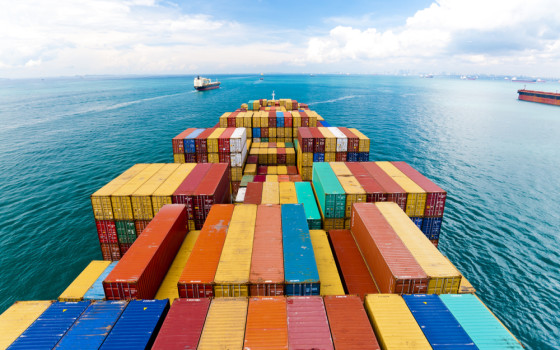
Arab exports worth $22 billion are affected by US tariffs... Jordan, Egypt, Lebanon, Morocco, Tunisia, and Bahrain are the most affected

- Europe and Arabs
- Sunday , 20 April 2025 10:48 AM GMT
New York: Europe and the Arabs
The United Nations Economic and Social Commission for Western Asia (ESCWA) warned of the repercussions of the new tariffs imposed by the United States. It indicated that these tariffs threaten non-oil Arab exports to the US market, estimated at $22 billion. According to the UN Daily News Bulletin, the commission explained that trade relations between the Arab region and the United States have witnessed significant transformations. Arab exports to the United States declined from $91 billion in 2013 – equivalent to 6% of the region's total exports – to only $48 billion in 2024 (about 3.5%). This is primarily due to the decline in US imports of crude oil and petroleum products.
However, non-oil exports from Arab countries to the United States nearly doubled during the same period, rising from $14 billion to $22 billion, an indication of growing economic diversification that is now threatened by new protectionist measures.
Which countries are most affected?
ESCWA explained in a policy brief issued yesterday that among the countries expected to face significant economic pressures as a result of these policies are Bahrain, Egypt, Jordan, Lebanon, Morocco, and Tunisia. Jordan is the most affected, as its exports to the United States constitute approximately 25% of its total global exports, placing it in a vulnerable position, according to ESCWA.
Bahrain also faces significant economic challenges due to its heavy reliance on the US market for aluminum and chemicals exports, which are among the sectors directly targeted by these tariffs. The United Arab Emirates, for its part, faces significant risks to its re-export market to the United States, estimated at approximately $10 billion, especially as goods from their original sources are subject to high customs duties.
ESCWA also noted that the Gulf Cooperation Council countries are facing additional economic pressures as a result of the recent significant decline in oil prices, exacerbating existing financial challenges.
Middle-income Arab countries, such as Egypt, Morocco, Jordan, and Tunisia, are expected to incur additional financial burdens as a result of rising sovereign bond yields, reflecting the global financial instability resulting from US tariff policies. ESCWA estimates that these countries may have to pay additional interest of approximately $114 million in 2025, which could negatively impact their social and development spending. ESCWA Executive Secretary Rola Dashti said, "The Arab region stands at a critical economic crossroads. Despite the immediate challenges posed by these fees, they offer an unprecedented opportunity to build more resilient, diversified, and integrated economies across the Arab world."












No Comments Found